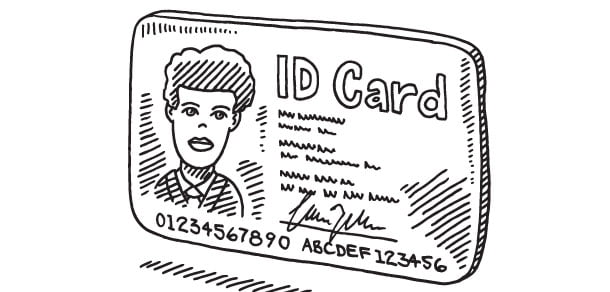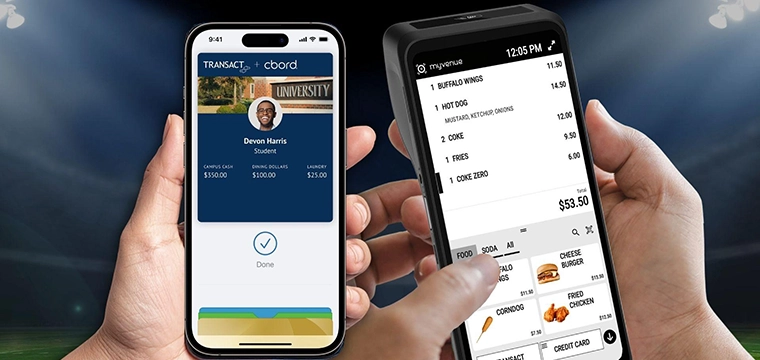
One common composite is a Teslin core with two polyester overlays, Scaglia says. Teslin is a substrate material, manufactured by PPG Industries, which is placed in the core of a card and then personalized with photos and other information. The Teslin substrate absorbs the printing and lamination materials making it highly resistant to de-lamination and altering. It also increases the durability of the card and adds cushion to better protect chips, antennae and other embedded electronics.
Teslin and other advanced card materials also enable the issuer to embed additional security elements into substrates of the card, Scaglia explains. “There are a range of Teslin substrates that incorporate different security features such as ultra violet or forensic features,” he adds.
The Teslin core is typically surrounded by polyester overlays, which protect the card. The three sections are bonded together using a thermal adhesive, Scaglia explains. “The advantages of this construction are that you secure the information into the substrate and once it’s there it can’t be altered,” he adds.
Here is the kicker. When done correctly, security elements can be embedded deep in a composite card making it easy for security personnel to spot forgeries, and thus making counterfeiting a difficult perhaps pointless exercise.
Composite cards can still use PVC, but in much smaller quantities. Using a PVC core with other materials such as polyester, Teslin and polycarbonate can add strength and security to the credential. “Every card material has its strengths and weaknesses,” Scaglia says.
The trick is finding the right composite materials that suit the credential’s specific needs. “If you want a five-year, dual-interface card, PVC isn’t strong enough to do that,” he says. “You need to adopt other materials as well.”
Some security features work better on different materials and using different card printer technologies, says Carla Boria, director of supplies & secure technologies product management at Entrust Datacard. “There is no one card type that gets good grades across the board, it all depends on what you’re looking for,” she adds.
For example, PVC is low cost, widely used, compatible with the majority of printing technologies and laminates, and issuers can embed a chip. On the downside, it’s not very durable and has a one to three-year lifespan. Composite cards made of PVC and PET – a polyester material – are more expensive but also last longer than cards made of PVC.
Many campus card office personnel have interesting stories of students coming in to replace their IDs. The card will be splitting into its different layers and when asked how it happened they explain they used it as an ice scraper on their windshield, a shim for a door lock, or left it baking on the dashboard on a hot summer day.




